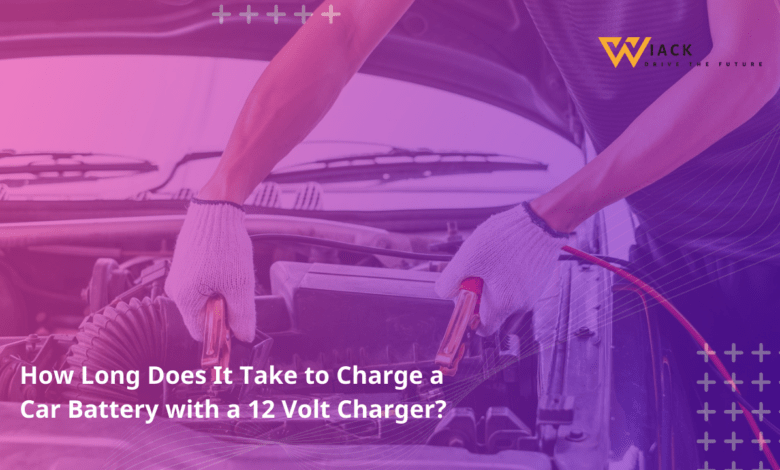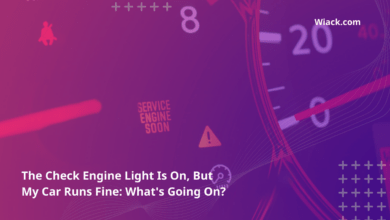How Long Does It Take to Charge a Car Battery with a 12 Volt Charger?

When your car battery dies, getting it recharged and your vehicle back on the road is the top priority. But how long does it actually take to charge a car battery using a standard 12 volt charger? The answer depends on several key factors.
Understanding the Factors Affecting Charging Time
The time required to fully charge a car battery can vary significantly based on the battery’s characteristics and the charging conditions. Here are the main factors that determine charging speed:
Battery Capacity (Ah)
A battery’s capacity, measured in amp-hours (Ah), indicates how much energy it can store. Larger capacity batteries take longer to charge than smaller ones. Common car battery sizes range from 35Ah to 100Ah.
Charging Current (Amps)
The charging current, measured in amps, determines how quickly electricity flows into the battery. A higher amperage charger will charge the battery faster. Most 12 volt car battery chargers provide 1-10 amps.
Battery Age and Condition
As batteries age, their ability to accept and hold a charge diminishes due to chemical changes and physical wear. An older, degraded battery will charge more slowly and may never reach full capacity compared to a new battery.
Temperature
Extreme temperatures, both hot and cold, can slow down charging. The ideal temperature range for charging a lead-acid battery is 50-86°F (10-30°C). Cold temperatures below 50°F slow the chemical reactions, while high heat above 86°F reduces charging efficiency.
Charger Type and Quality
The type of charger used impacts charging speed. Basic chargers provide a constant current, while more advanced smart chargers have multi-stage charging that adjusts the current to optimize charging time and battery health. Low-quality or poorly maintained chargers may charge inefficiently.
Estimating Charging Time
With an understanding of the key factors, you can estimate how long it will take to charge your car battery. Here’s a simple formula:
Basic Calculation: Capacity / Current + 20%
Divide the battery capacity (Ah) by the charger’s current (amps). Then, add about 20% to account for slower charging as the battery nears full charge.
For example:
- 50Ah battery on a 4 amp charger
- 50Ah / 4 amps = 12.5 hours
- 12.5 hours + 20% ≈ 15 hours
Typical Charging Times for Common Battery Sizes
Here are estimates for how long it takes to charge common car battery sizes from a nearly depleted state using a 4 amp charger:
| Battery Size | Approx. Charging Time |
|---|---|
| 35Ah | 11 hours |
| 50Ah | 15 hours |
| 100Ah | 30 hours |
*Note: These are rough estimates. Actual times will vary based on specific conditions.
Charging Methods and Their Impact
Chargers offer different amp settings that affect charging speed. Here’s a breakdown:
Slow Charging (1-2 Amps)
- Takes the longest, 24-48 hours
- Gentle on the battery, ideal for maintenance charging
Moderate Charging (4-6 Amps)
- Typical for most car battery chargers
- Good balance of speed and battery health
- Takes 10-15 hours for an average battery
Fast Charging (8-10 Amps)
- Fastest method, under 10 hours in many cases
- May shorten battery lifespan if used frequently
- Best reserved for emergencies
Safety Considerations
When charging a car battery, always prioritize safety by following these guidelines:
Overcharging Risks
Never overcharge a battery. Disconnect the charger promptly once charging is complete. Overcharging can cause the battery to overheat, swell, or even explode.
Battery Overheating
If the battery becomes hot to the touch while charging, stop immediately and allow it to cool before resuming. Excessive heat damages the battery.
Proper Charger Connection
Connect the charger correctly: positive (red) to positive, negative (black) to negative. Reverse polarity can damage the battery and charger. Ensure the connections are secure.
Best Practices for Charging a Car Battery
To get the best results and extend your battery’s lifespan, follow these tips:
Ventilation and Temperature Control
Charge in a well-ventilated area to disperse any gases. Avoid extreme temperatures, charging in a moderate environment around 70°F (21°C) when possible.
Monitoring the Charging Process
Check on the battery regularly during charging. Terminate charging if you notice any signs of trouble like excessive heat, leaking, or strange odors.
Maintaining Battery Terminals
Keep the battery terminals clean. Remove any corrosion with a baking soda and water paste before charging to ensure a good connection.
Checking Electrolyte Levels (for Wet-Cell Batteries)
If you have a conventional wet-cell battery, check the electrolyte level before charging. If it’s low, add distilled water until it reaches the fill line. Wear gloves and eye protection.
Conclusion and Key Takeaways
To sum up, the time it takes to charge a car battery with a 12 volt charger depends on the battery’s capacity, charger’s amperage, battery condition, and temperature. Charging times can range from under 10 hours to over 24 hours in typical scenarios.
Remember these key points:
- Charging time varies widely based on battery size and charger output
- Prioritize battery health over speed by using moderate charging when possible
- Consult your car manual for specific instructions on charging and maintenance
With the right knowledge and tools, you can safely and efficiently recharge your car battery to get back on the road with confidence.
Get the latest car news, reviews, and prices at Wiack.com. Your one-stop destination for all things automotive.





